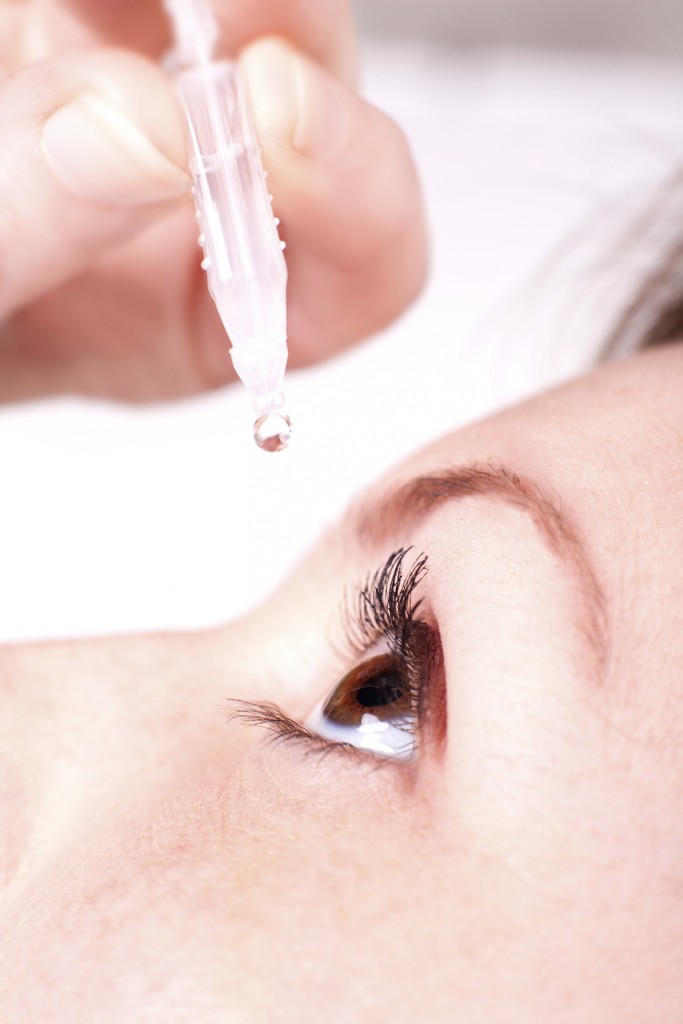Glaucoma – Manage It For Better Eye Health


I frequently advise my over-40 patients that regular eye exams every 3-5 years should be part of your health maintenance. One of the most important reasons to receive regular eye care is to check for glaucoma – a build up of fluid pressure within the eye that can silently progress to vision loss!
I write silently progress because glaucoma has very little noticeable signs or symptoms until it has reached an advanced stage and vision loss alerts you to its presence. In fact, glaucoma is the second leading cause of blindness. However, progression of glaucoma can be prevented with early treatment, which is why it is so important to schedule regular eye exams.
Let me share with you the same information I tell my patients about causes, symptoms and treatment of glaucoma.
What Is Glaucoma?
There are two basic types of glaucoma, both with different symptoms:
1. Primary open angle – slow loss of peripheral vision, advancing to tunnel vision and greater vision loss.
2. Acute angle closure glaucoma – this can have the sudden onset of visual disturbance, especially in low light; eye pain, nausea and vomiting usually from the pain, blurred vision, halos around objects, and redness of the eye. This is an emergency situation that requires immediate pressure reduction and likely an incision in the iris which helps drain built up fluid.
Are There Any Risk Factors for Glaucoma?
Yes, actually, there are. Glaucoma affects the eye health of African Americans almost 5 times greater than Caucasian Americans, with Hispanic and Asian Americans the next highest. The connection likely is because hypertension is highest amongst African Americans and Asians. Hypertension can aggravate the buildup of fluid, or intraocular pressure, in the eye.
Having metabolic resistance, diabetes and hypothyroidism, or low thyroid hormone, also puts you at risk for glaucoma, as people with these conditions can frequently also have hypertension.
If you have a family member with glaucoma, it increases your risk for developing it. Other risk factors include just being over age 60, nearsighted, and/or using corticosteroids for prolonged periods of time, such as may occur in certain bowel disorders and asthma.
How Is Glaucoma Treated?
For the most part, early-detected glaucoma can be treated fairly easily with the application of special medications in the form of eyedrops that are placed into the eyes on a daily basis. These drops reduce the pressure in the eye and can halt the progression of the condition.
Your eye doctor may also give you an oral medication to boost the efficiency of the eyedrops that is given. However, these oral glaucoma medications can have a few unpleasant side effects associated with them in early use, including rashes, depression, fatigue, and kidney stones, just to name a few.
A few of my patients who have glaucoma, and could not tolerate medication, have had surgery for their condition, which may be an option for you. A procedure called laser trabeculoplasty can now be done for glaucoma patients. It is often done in your doctor’s office under a local anesthetic only. A laser is used to open up the drainage canals of your eye to allow the vitreous humor (the fluid surrounding your eye) to drain and relieve pressure on the eye.
Another type of surgery that can be done for glaucoma is called a filtering procedure, or a trabeculectomy. This needs to be done as an outpatient surgical procedure and/or at a hospital. An eye surgeon makes an incision in the white part of your eye and removes some of the structure there. This newly created “hole” allows for the build-up fluid to drain and is not visible.
One of my patients with glaucoma had a different surgical procedure where she had drainage implants put in. It is done as an outpatient at a hospital. The surgeon makes an incision in the eye and puts in drain implants, which drains the vitreous humor.
What Can You Do To Prevent Glaucoma?
The things that can help prevent glaucoma are really, general health recommendations including:
➢ Regular eye care – glaucoma found on eye exams, no warning signals.
➢ Treat high intraocular eye pressure – regular eye care is key to finding it early.
➢ Manage your weight – does a lot to keep blood pressure in normal ranges.
➢ Protect your eyes – sometimes glaucoma can develop after being hit in the eye with tennis balls, or flying debris.
➢ Exercise – decreases high blood pressure, subsequent intraocular pressure.
➢ Maintain eye-healthy diet – plenty of eye specific vitamins such as antioxidants including alpha lipoic acid, bilberry, Vitamins C and E, beta carotene, Omega-3 fatty acids. The herb gingko biloba may also help support ocular blood flow.
As I advise my patients about their health in general, it is important to maintain a healthy body weight so diabetes and hypertension don’t develop and place you at higher risk for a number of health problems, including glaucoma. Glaucoma is one of those conditions that, although it has no cure, it can be treated successfully to prevent further decline IF it is diagnosed early enough. I can’t stress enough, then, how important it is to have regular eye exams and maintain an eye-healthy diet with optimal nutrition and supplements, to keep you seeing clearly.